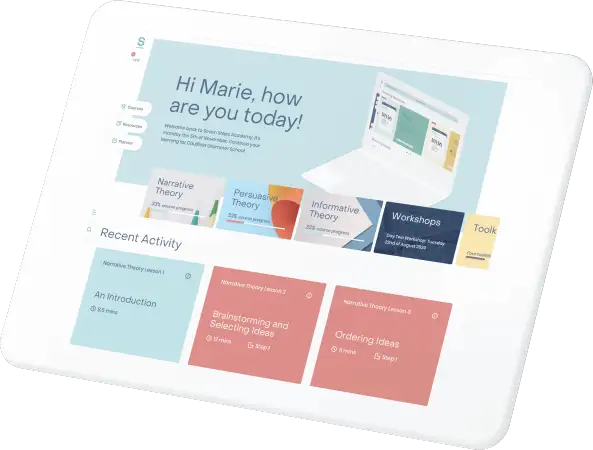When implementing any new program, one of the biggest challenges schools face is keeping the momentum going once the initial excitement has died down. While teachers are continually looking to refine and improve their practice, when faced with a crowded curriculum and ever increasing demands it is human nature to revert back to what you know. Increasingly, therefore, schools attempting to achieve sustained school-wide change are appointing ‘coaches’ to provide implementation support.
‘Called by many different titles, teacher leaders in this role are primarily school-based professional development specialists who work with individuals and teams to design and facilitate appropriate learning experiences, provide feedback and support, and assist with implementation challenges.’
Killion, J. (2009). ‘Coaches’ Roles, Responsibilities and Reach’ in Knight, J. (Ed.), Coaching Approaches & Perspectives, Corwin Press
With a clear focus and the support of school leadership, coaches can have a profound and lasting impact on teaching practice and student learning.
A Tried and Tested Approach
A case in point would be the mentoring program that was introduced in Finland in 2008 to support newly certified teachers.
This program facilitates monthly meetings between teams of new teachers to share and reflect on their experiences and the challenges they face in the classroom. An experienced teacher with training in coaching and facilitation is assigned to each group to provide guidance and support throughout the process.
The ultimate aim is to create a community of teachers who learn from and support one another. Finland’s academic results and high standards of teaching practice speak volumes about the positive impact that this approach is having on their teachers.
In the Australian context, the term ‘literacy coach’ has become more and more common following the Government’s Literacy and Numeracy National Partnerships Program which ran from October 2009 to December 2012. This initiative funded the appointment of literacy and numeracy coaches in government schools.
The core role of the literacy coaches was to work directly with teachers in their classrooms in an effort to improve students’ literacy outcomes. The evaluation report which followed repeatedly stresses the importance of having continued access to in-class teacher support and direction provided by trained coaches.
Seven Steps Coach – Rosie Russell
Recognising the power of this approach, Seven Steps to Writing Success previously ran a professional development program called the Seven Steps Coaches Course around the country, which was designed to train teachers how to lead the program in their school. There are now over 1,000 Seven Steps Coaches equipped with the skills to ensure that their Sizzling Start doesn’t fizzle.
One such Coach is Rosie Russell from Churchlands Primary School in WA. Rosie was one of three teachers in her school who attended a Seven Steps Workshop after NAPLAN data identified a need for a whole school focus on writing. Having been asked to take on the responsibility of implementing the program across the school, she then went on to complete the Coaches Course in Brisbane.
Since then Rosie has rolled out one step per term at staff development days; this then becomes the focus for all teachers for the duration of the term, culminating in a whole school moderation task. Having a common language and a specific focus has been a huge success, but making the program ‘stick’ is still an ongoing challenge.
In an effort to address this challenge Rosie has set up a network of Seven Steps schools in her local area who share samples and ideas throughout the year. The support provided by this group has gone some way towards alleviating the pressure of sustaining the program in the long term.
It has also highlighted the importance of appointing one key person to lead the program in a school, without this central driving force any change is unlikely to last due to common obstacles such as changes in staff, competing priorities, lack of time and fresh ideas.
Learn More About Coaching
To learn more about the impact of coaching in Australia and elsewhere take a look at the following documents:

